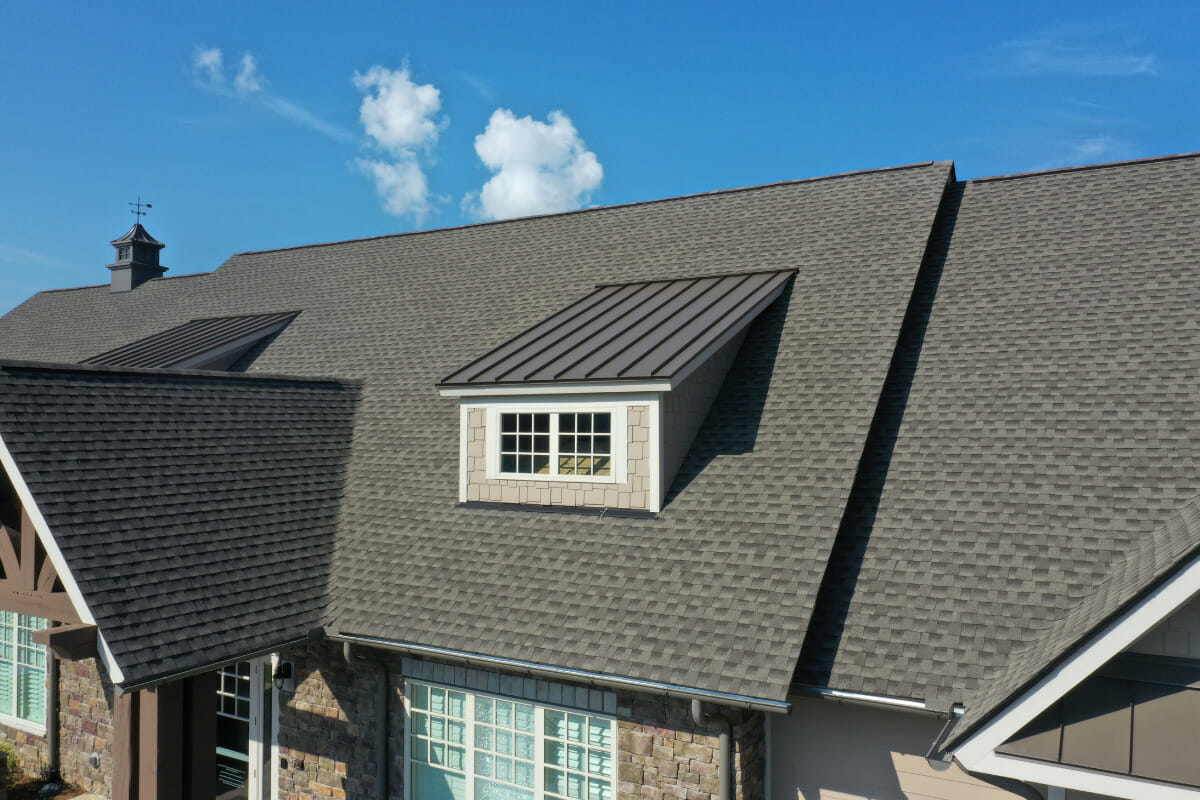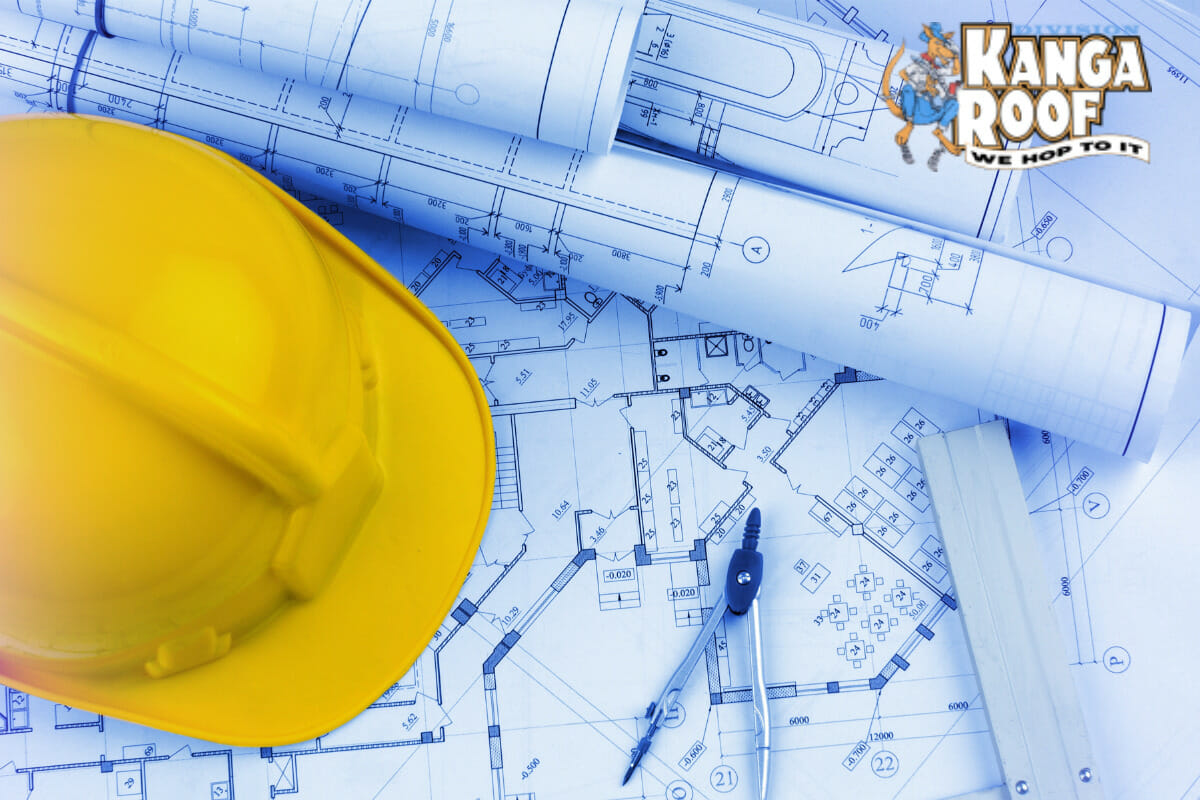Your geographic location, environment, and climate play a vital role in roof installation and building construction. If you install a roof incompatible with the weather conditions in your area, it will be prone to damage. Therefore, local building codes set by the local government in the area are crucial to your building and the health of your roof.
Local building codes are a set of standards and requirements that every building in the area must meet. The implementations of these codes ensure the building is weather and fire-resistant, and it can withstand the seasonal weather in the area.
Local building codes also impact roof installation, the materials used, and the cost, which you must know before constructing and installing a roof. In this blog post, The Impact Of Local Building Codes On Roofing In Georgia, we have covered everything you need to know. Read on to learn more about local building codes and roofing in Georgia.
Understanding Local Building Codes
Local building codes play a crucial role in regulating a building’s design, construction, and maintenance within a specific jurisdiction, such as a city or county. Local government authorities, such as building departments or code enforcement agencies, establish and enforce these codes through inspections and permits.
In Georgia, these building codes are established and enforced at the local level, meaning the requirements may vary from jurisdiction to jurisdiction. Building codes primarily aim to protect public health, safety, and welfare by ensuring that buildings are structurally sound, energy-efficient, and safe for occupancy.
By providing guidelines for structural integrity, and how elements of a residential and commercial building should be constructed, local building codes promote building sustainability. As local codes ensure the building’s safety, functionality, and compatibility, their compliance by contractors is essential. Therefore, contractors and property owners must adhere to these codes in order to obtain necessary permits and pass inspections.
Roofing Requirements Under Georgia Building Codes
Local building codes in Georgia require that the roofing materials used in the roof installation are up to date and meet the standards of fire rating and wind-uplift resistance. Moreover, local building codes require the roofer to install roofs under standard guidelines.
Minimum Slope
The required minimum slope (based on local building codes) for roofing systems in Georgia depends on the type of roofing material you use, and environmental factors. For example, low-slope roofs require a minimum slope of 1/4 inch per foot, while steep-slope roofs require a minimum slope of 2/12 for asphalt shingles.
While installing a new roof or replacing an existing one, you should always remember the slope will impact a roof’s structural integrity.
Type Of Roofing Material
Your local building code will also establish requirements regarding the types of roofing materials approved for installation. Specifically ensuring that the materials are compatible with the roofing system you intend to install them on.
For example, when it comes to low-slope roofs, common materials include built-up roofing, modified bitumen roofing, and single-ply membranes, while steep-slope roofs may use materials such as asphalt shingles, clay or concrete tiles, or metal roofing.
Fire-Resistance Standards
Building codes in Georgia require roofing materials to meet specific fire-resistance standards, such as Class A, B, or C ratings. These ratings indicate the level of fire resistance that a roofing material has.
Wind Uplift Resistance
Local building codes in Georgia also require roofing systems to meet specific wind uplift resistance standards. This ensures that the roof can withstand high winds and will prevent damage or collapse during severe weather events.
Installation Requirements
Building codes in Georgia set specific requirements for the installation of roofing systems, such as the use of proper fasteners, underlayment, and flashing to ensure proper water resistance and prevent leaks.

The Impact Of Building Codes On Roof Installation
Local building codes are an advantage for roofs, and they ensure a roof will last. But they do have substantial effects on how roofs are installed. Particularly, they require that you hire a licensed roofing contractor to complete the job while meeting all the standards.
Cost
For roof installation, roofers have to adhere to local building codes in Georgia, and therefore, the roofing cost may increase. Because local building codes require certain materials and installation methods be adhered to, you need to call a certified roofer with professional experience. This can also add to the total installation or replacement cost.
Additionally, using specific roofing materials that meet fire resistance standards or wind uplift resistance requirements may cost more than other materials.
Timeline
Local building codes in Georgia may require additional inspections and permits, which can impact the timeline of a roofing project. Building codes also require specific installation methods that take longer to complete than other methods, which will extend the timeline of a roofing project.
Quality Of Work
Local building codes in Georgia ensure that the finished product is safe, durable, and functional. By complying with these standards, roofing contractors can measure the quality of work that meets or exceeds the set minimum requirements. Additionally, building codes require inspections and testing of the roofing system to check if it meets all requirements.
Safety
One of the many concerns about roof installation or replacement is whether the finished product is safe and will provide protection. Since a roof affected by water leaks and weather impacts results in a big concern for home and business owners, local building codes need to be implied.
Local building codes in Georgia are designed to protect public health, safety, and welfare. Additionally, they ensure that buildings, including roofs, are structurally sound and safe for occupancy.
Legal Compliance
Local building codes in Georgia are legally binding, and failure to comply with these codes can result in fines, penalties, and even legal action. By working with a licensed roofing contractor who is familiar with local building codes, property owners can ensure that their roofing project is compliant with all relevant regulations and avoid legal issues in the future.
Benefits Of Complying With Local Building Codes
There are numerous benefits to roofs being installed under the guidelines, including:
Increased Safety
As we have discussed earlier in the blog, a roof is equivalent to safety for home and business owners. Owners, for safety purposes, incorporate quality materials, hire qualified roofers, and repair their roofs. In addition to all the security steps, homeowners also incorporate local building codes when installing or replacing their roofs. By sticking to these codes only, you can increase your roof’s safety and amplify its protection.
Improved Energy Efficiency
Local building codes also aim to improve a roof’s energy efficiency. By energy efficiency of a roof, we mean its reflectivity. For instance, if a metal roof reflects a greater portion of the sun hitting its surface, the roof is said to be energy efficient. The roofing materials, if they aren’t energy efficient themselves, increase a home or business’s energy bills. However, the roofing materials manufactured to meet local building code guidelines are energy-efficient, and therefore, they reduce the cost spent on energy consumption.
Protection Against Legal Liabilities
While roof installation under the strict guidelines of local building codes can be tricky and expensive, a roof installed without them can cause you to pay more in the long run. It may also cause injuries.
If you violate the local building codes, a roofer and the property owner can be responsible for any accident that occurs. It may also lead to legal liabilities for violating the rules and regulations.
Increased Property Value
The roofing materials tested for local building codes are occasionally more expensive. But these roofing materials are durable and long-lasting, and they accompany homeowners for a long time. The addition of these new roofing materials increases the value of your home as new buyers can trust that the roof is in good condition, and they won’t have to repair or replace it themselves for a while.
Do You Want To Install A Roof With A Certified Roofer?
If you want to hire an expert and certified roofer to install a roof in Gainesville that meets local building regulations, you need to contact Division Kangaroof today, at (706) 778-3516. Our company is home to an expert and professional team with a good understanding of all building codes in the area. We offer many services to both residential and commercial building owners, including roof installation, replacement,repair, and provide roofing materials such as asphalt shingles and metal roofs. If you are interested in these services, contact our trustworthy and reliable roofing team today!


